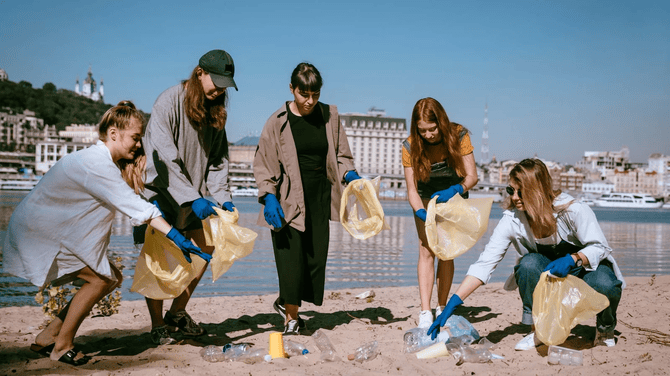Innovative Research Driving Environmental Toxins Regulation

From the deepest oceans to the highest mountains, microplastics have infiltrated every corner of our planet. Once invisible to the public eye, these microscopic particles are now recognized as one of the most pervasive environmental threats of our time. The growing concern over their presence in food, water, and even air has brought global attention to the urgent need for effective environmental toxins regulation. Governments, researchers, and industries are uniting to address this challenge, seeking to balance economic growth with ecological preservation in a rapidly changing world.
Understanding the Microplastics Crisis
Microplastics are tiny fragments of plastic debris less than five millimeters in size. They are generated through the breakdown of larger plastics or produced intentionally for industrial use in cosmetics, clothing, and packaging. These particles are now found in drinking water, marine life, and even human bloodstreams, raising alarms about their potential health and ecological effects. The challenge lies not only in understanding their impact but also in implementing effective environmental toxins regulation that can limit their spread and mitigate future damage.
The accumulation of microplastics in natural ecosystems disrupts biodiversity, contaminates food chains, and compromises ecosystem stability. Recent research published across major sustainability platforms, including those featured in the Business Insight Journal, highlights how existing policies often fail to capture the full scope of the microplastics crisis. Stronger frameworks and coordinated international efforts are required to ensure consistent global standards for production, recycling, and waste management.
The Role of Environmental Toxins Regulation
Regulation plays a critical role in shaping how nations confront the environmental consequences of plastic pollution. Environmental toxins regulation encompasses a range of strategies designed to reduce exposure to harmful substances in the environment—covering air, soil, and water quality. When applied to microplastics, such regulations aim to limit the use of microbeads, encourage sustainable packaging, and support circular economy initiatives.
Countries across Europe, Asia, and North America are introducing bans on single-use plastics and enforcing stricter labeling laws for manufacturers. However, the implementation of these regulations varies widely, and gaps in enforcement often allow microplastics to continue entering ecosystems. The BI Journal emphasizes the importance of harmonized standards that bridge regional differences and promote innovation within industries to develop biodegradable alternatives.
Business Insight Journal on Policy and Innovation
Within the pages of the Business Insight Journal, policy analysts and sustainability experts explore the intersection of environmental responsibility and economic viability. Addressing the microplastics challenge requires collaboration between governments, corporations, and consumers. This collaboration ensures that regulatory efforts not only limit pollutants but also encourage industries to invest in clean technologies.
Innovations in filtration systems, green chemistry, and advanced recycling are emerging as viable solutions. The journal underscores that successful environmental toxins regulation must integrate science-driven policymaking with industry incentives to drive lasting change. In this context, initiatives such as The Inner Circle demonstrate how thought leaders and businesses are coming together to share insights, collaborate on sustainability goals, and accelerate progress toward global environmental resilience.
Corporate Responsibility and the BI Journal Perspective
Beyond regulation, the private sector’s role in tackling the microplastics problem is critical. Many corporations are embracing sustainability commitments by redesigning supply chains, reducing packaging waste, and transitioning to renewable materials. However, these initiatives must be paired with transparency and measurable outcomes. The BI Journal regularly highlights corporate case studies where proactive sustainability measures not only reduced environmental footprints but also enhanced brand reputation and consumer trust.
Companies that adopt lifecycle assessments and implement toxin-free product standards are better positioned for long-term success. In a global marketplace increasingly driven by conscious consumers, such forward-thinking strategies help businesses align profit with purpose. This alignment strengthens the overall impact of environmental toxins regulation and empowers organizations to become leaders in ecological stewardship.
The Path Toward Sustainable Alternatives
As the world faces mounting plastic waste, the need for sustainable alternatives has never been greater. Researchers are developing biodegradable polymers, plant-based materials, and innovative waste-to-resource technologies. Governments are incentivizing these breakthroughs through funding, partnerships, and regulatory support. Yet, widespread adoption depends on affordability and scalability.
Education also plays a vital role—raising awareness among consumers about the consequences of plastic pollution and encouraging responsible disposal habits. Public engagement campaigns, combined with effective regulation and corporate accountability, form the foundation for tackling the microplastics challenge at every level of society. By merging innovation, policy, and public action, the global community can move closer to a cleaner and more sustainable future.
For more info https://bi-journal.com/environmental-toxins-regulation-microplastics-challenge/
Conclusion
The battle against microplastics represents one of the most urgent environmental priorities of our era. Through robust environmental toxins regulation, global collaboration, and scientific innovation, humanity has the opportunity to reverse decades of pollution and restore ecological balance. Publications such as the Business Insight Journal continue to play a pivotal role in amplifying these conversations—bridging the gap between research, policy, and practice. By embracing responsibility and innovation, we can transform this challenge into a catalyst for sustainable progress and environmental resilience.
This news inspired by Business Insight Journal: https://bi-journal.com/
- Art
- Causes
- Crafts
- Dance
- Drinks
- Film
- Fitness
- Food
- Jogos
- Gardening
- Health
- Início
- Literature
- Music
- Networking
- Outro
- Party
- Religion
- Shopping
- Sports
- Theater
- Wellness


